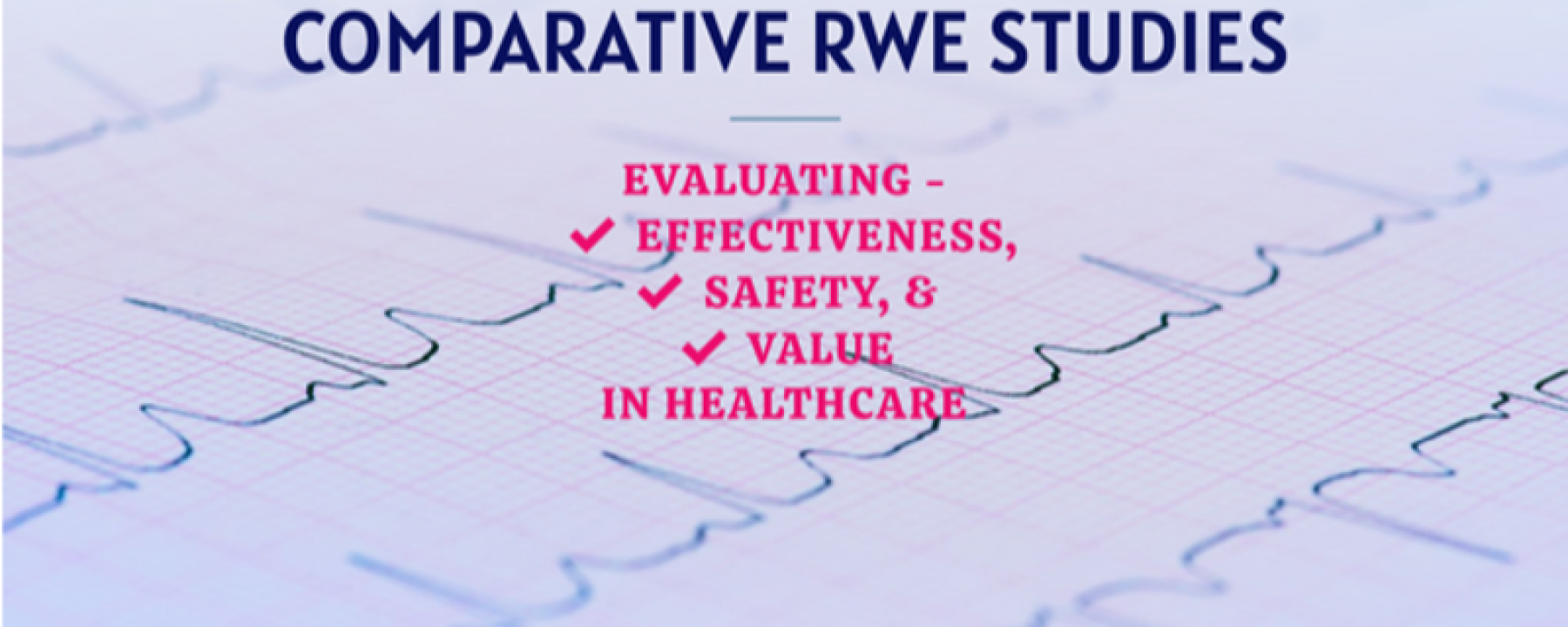
Comparative Studies in Real World Evidence (RWE)
Comparative Studies in Real World Evidence (RWE)
Comparative studies in Real-World Evidence (RWE) are a critical component of modern healthcare research, providing insights into the effectiveness, safety, and value of different medical interventions in routine clinical practice. Unlike randomized controlled trials (RCTs), which are conducted in highly controlled environments, RWE comparative studies analyze data from real-world settings, offering a more accurate reflection of how treatments perform in diverse patient populations.
Purpose of Comparative Studies in RWE
The primary purpose of comparative studies in RWE is to assess how different interventions—whether they are drugs, medical devices, or treatment strategies—compare in terms of effectiveness, safety, and other outcomes in the real world. These studies can inform clinical guidelines, healthcare policies, and reimbursement decisions by providing evidence that reflects actual patient experiences.
Types of Comparative Studies in RWE
1. Comparative Effectiveness Research (CER):
- Definition: CER studies evaluate the relative effectiveness of two or more interventions. These studies aim to determine which treatment works best for which patients under real-world conditions.
- Example: Comparing the effectiveness of two antihypertensive medications in lowering blood pressure in a diverse patient population.
2. Comparative Safety Studies:
- Definition: These studies focus on comparing the safety profiles of different interventions. They assess the incidence of adverse events or side effects in real-world patient populations.
- Example: Comparing the risk of gastrointestinal bleeding between two nonsteroidal anti-inflammatory drugs (NSAIDs) in elderly patients.
3. Cost-Effectiveness Studies:
- Definition: These studies compare the cost-effectiveness of different interventions by evaluating both their clinical outcomes and associated costs in a real-world context.
- Example: Comparing the cost-effectiveness of a new biologic therapy versus a traditional treatment for rheumatoid arthritis.
Data Sources for Comparative Studies in RWE
Comparative studies in RWE utilize a variety of data sources to capture real-world patient experiences:
- Electronic Health Records (EHRs): Provide detailed clinical information, including diagnoses, treatments, lab results, and outcomes.
- Claims Data: Include information on healthcare utilization, costs, and sometimes outcomes, but may lack detailed clinical data.
- Patient Registries: Collect longitudinal data on patients with specific conditions, often including detailed clinical and patient-reported outcomes.
- Patient-Reported Outcomes (PROs): Capture the patient's perspective on their health status, treatment satisfaction, and quality of life.
- Health Surveys and Administrative Databases: Provide additional context, such as social determinants of health, lifestyle factors, and broader population health trends.
Analytical Approaches
Given the observational nature of RWE data, comparative studies require robust analytical methods to address potential biases and confounders:
- Propensity Score Matching (PSM): Balances treatment groups based on observed characteristics to reduce confounding.
- Regression Modeling: Adjusts for multiple confounding factors simultaneously, allowing for the estimation of treatment effects.
- Instrumental Variable Analysis (IVA): Addresses unmeasured confounding by using an external variable related to the treatment but not directly to the outcome.
- Sensitivity Analyses: Test the robustness of the study findings to different assumptions and potential biases.
Advantages of Comparative Studies in RWE
- Generalisability: RWE studies include a broader and more diverse patient population, making the results more applicable to everyday clinical practice.
- Real-World Relevance: These studies provide insights into how treatments perform outside the controlled environment of clinical trials, reflecting variations in patient adherence, comorbidities, and healthcare settings.
- Timeliness: RWE studies can be conducted more quickly than RCTs, providing timely information that can inform healthcare decisions.
Challenges and Limitations
- Data Quality: Real-world data can be messy, incomplete, or inconsistently recorded, which can impact the validity of the findings.
- Bias and Confounding: Without randomization, there is a greater risk of bias due to confounding factors that may influence the outcomes.
- Causality: Establishing causal relationships in observational studies is more challenging than in RCTs, requiring careful study design and advanced analytical techniques.
Impact on Healthcare
Comparative studies in RWE are increasingly influencing healthcare decisions, including:
- Clinical Guidelines: Providing evidence that informs the development of guidelines for clinical practice.
- Regulatory Decisions: Supporting regulatory agencies in assessing the real-world impact of medical products.
- Reimbursement Policies: Guiding payers in making decisions about coverage and reimbursement based on real-world performance and value.
Conclusion
Comparative studies in RWE are essential for understanding how different medical interventions perform in real-world settings. By leveraging diverse data sources and advanced analytical techniques, these studies provide valuable insights that can enhance patient care, inform clinical and policy decisions, and ultimately improve healthcare outcomes. As the demand for real-world evidence continues to grow, the role of comparative studies in RWE will become increasingly vital in shaping the future of healthcare.
Transform healthcare with Comparative Real-World Evidence (RWE) studies. Utilize advanced data to improve patient care and outcomes. Contact us for more information and to access our Real-World Evidence (RWE) services for pharmaceuticals and biotechnology in Mexico, Brazil, and LATAM.